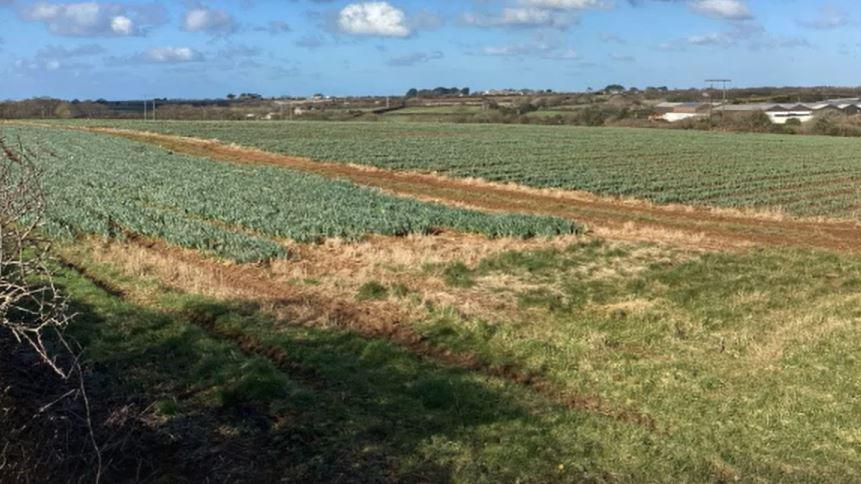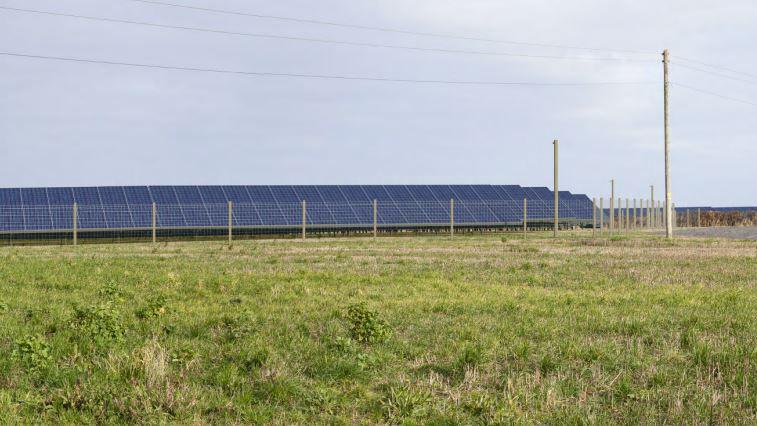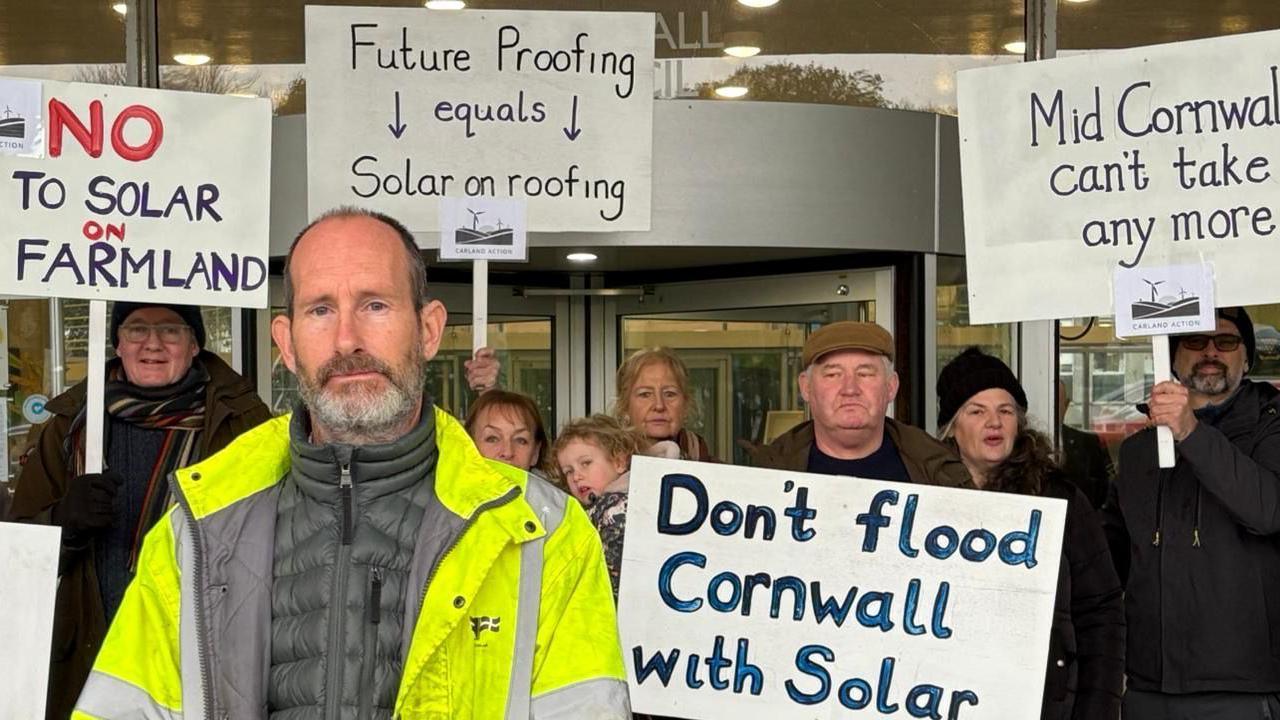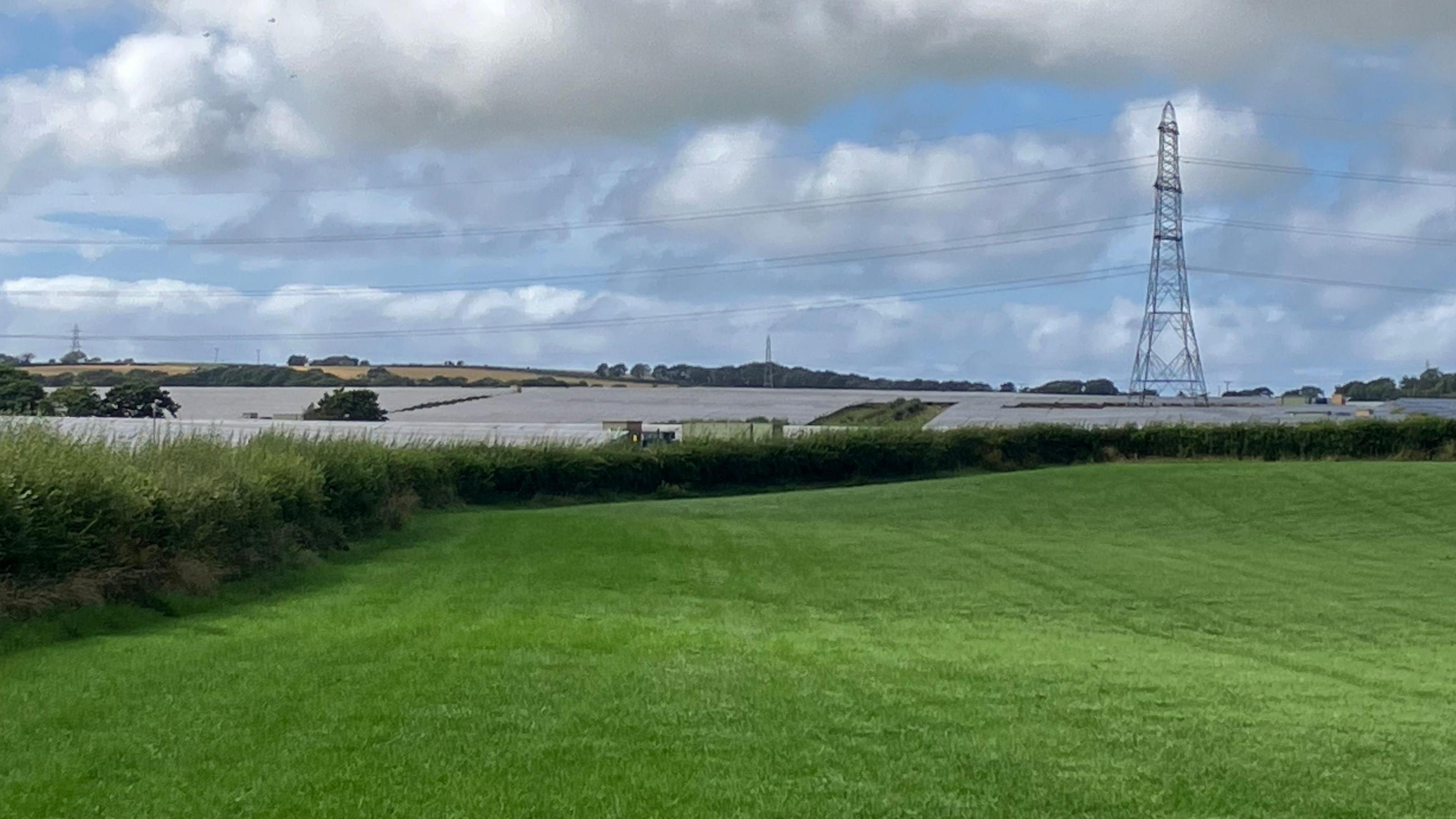Councillors refuse 200 acre solar farm plans

Cornwall Council voted against the Speedwell Solar Farm Ltd development at Gwinear, near Hayle
- Published
An application to build a solar farm on 200 acres of farmland in Cornwall has been refused by councillors.
Cornwall Council voted against the Speedwell Solar Farm Ltd development at Gwinear, near Hayle on Thursday, with 10 in favour of the refusal and one abstention.
Planners had recommended the site, which would have the potential to power the equivalent of 12,000 homes, for approval.
Harm to grade II heritage buildings on the 22 agricultural fields on the site and turning the farmland to an industrial landscape were among the reasons cited for the rejection.
'Strike a balance'
Speedwell said the development would be operational for 40 years and would deliver multiple benefits including a car park and wildlife area for Gwinear Primary School, according to the Local Democracy Reporting Service.
It added the solar farm would be temporary and reversible, and the land could still be farmed with sheep grazing during the operational phase.
Serena Eustice, a neighbouring businesses owner, said: "Meeting our energy goals cannot be used to justify the wrong development in the wrong location.
"There is a need to strike a balance between food security and climate ambitions of the UK."
'Energy and food security'
The landowners, Albertine and Geoffrey Leggo, said the choice of solar energy and farming did not have to be "a choice of either/or".
"There is more than enough land to achieve both energy and food security, allowing us to become self-sufficient as a nation," Mrs Leggo added.
Councillor Rob Nolan said: "I'm very proud that we produce 46% of our own electricity now, but I don't like the industrialisation of the landscape we're seeing."
Mr Nolan and other councillors found the industrialisation, the impact on local jobs, land classification and the cumulative impact of solar farms across Cornwall as reasons for refusal.
Follow BBC Cornwall on X, external, Facebook, external and Instagram, external. Send your story ideas to spotlight@bbc.co.uk, external.
Related topics
- Published7 February

- Published21 November 2024

- Published15 August 2024
